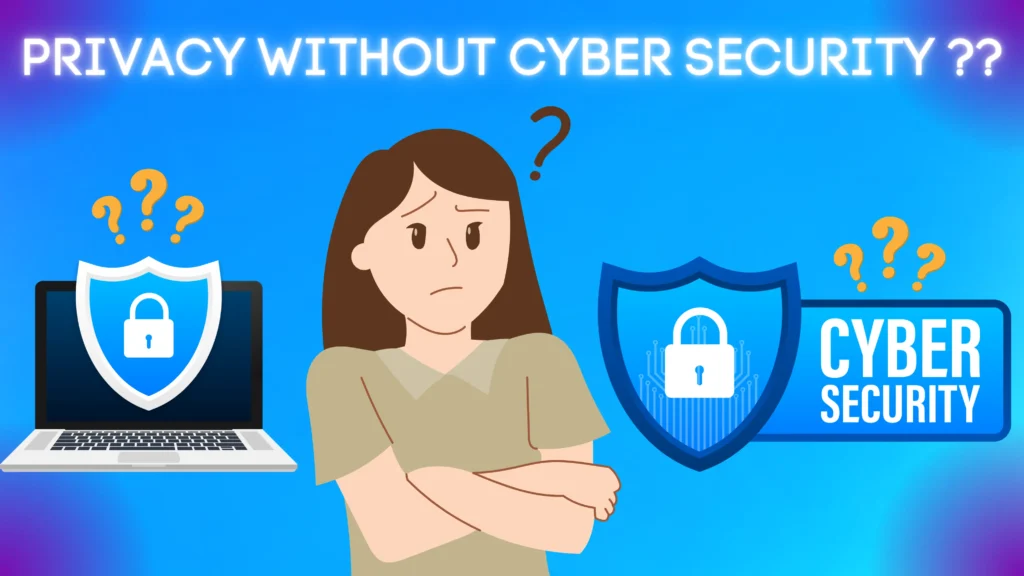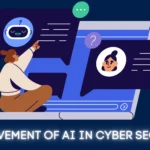Are you looking for some information about privacy and cyber security? are you looking for the answer to the question Can there be Privacy without Cybersecurity? then you are on the correct article, I am a cyber security expert and I will be telling you completely about it in this article, so stay tuned!
Introduction
The internet has made it easier than ever before to access and share information, but it has also created new challenges when it comes to protecting personal privacy. At the same time, cybersecurity has become an essential aspect of protecting against cyber threats, such as hacking and data breaches. But can there be privacy without cybersecurity? Or is it necessary to sacrifice one for the other? This article will explore the intersection of privacy and cybersecurity and the challenges of balancing the two.
The Importance of Privacy
Privacy is the right to keep personal information and activities private and to control how that information is collected, used, and shared. It is essential for human dignity and autonomy, and it allows individuals to freely express themselves and make their own choices. In the digital age, privacy is becoming increasingly important as technology allows for the collection and sharing of personal information on an unprecedented scale.
Privacy is not only a fundamental human right but also a crucial aspect of security. It enables individuals to have control over their personal information and how it is shared, used, and collected. In today’s digital age, privacy concerns have increased as more and more personal information is being shared and stored online.
Moreover, with the growing number of data breaches and cyber-attacks, personal information is at a greater risk than ever before. Without proper privacy protection, individuals may be at risk of having their personal information misused or exploited for financial gain or other malicious purposes.
Additionally, with the increased use of personal devices and the internet, privacy concerns extend beyond the traditional boundaries of the home and office, and into the public sphere. Without proper protection, individuals may be at risk of having their personal information misused or exploited for financial gain or other malicious purposes.
The Importance of Cybersecurity
As the world becomes increasingly connected through the internet, cybersecurity has become essential for protecting against cyber threats such as hacking, data breaches, and cybercrime. The increasing use of technology in business and government has made cybersecurity a critical issue for organizations of all sizes.
Cyber threats are constantly evolving, and it’s essential to protect against them to ensure the confidentiality, integrity, and availability of information. With the increasing use of technology in business, government, and personal life, cybersecurity has become critical for organizations of all sizes and individuals. It’s not only the responsibility of organizations to ensure cybersecurity, but individuals also have a role to play in protecting their personal information and devices.
However, it’s not only the organizations that are responsible for cybersecurity, the individuals are also responsible for protecting their personal information and devices. As cyber-attacks become more sophisticated and frequent, it is important for individuals to be aware of the risks and take steps to protect themselves.
The Intersection of Privacy and Cybersecurity
The intersection of privacy and cybersecurity can be seen in the collection and handling of personal information. Organizations that collect personal information have a responsibility to protect that information from unauthorized access and use. This includes not only protecting it from cyber threats but also being transparent about the information that is being collected and how it is being used.
The intersection of privacy and cybersecurity is evident in the collection and handling of personal information. Organizations that collect personal information have a responsibility to protect that information from unauthorized access and use. This includes not only protecting it from cyber threats but also being transparent about the information that is being collected and how it is being used. Additionally, individuals also have a responsibility to be aware of the personal information they share and to take steps to protect it.
it’s crucial for organizations to have a comprehensive data governance framework in place that covers data collection, storage, and use, which will help organizations balance privacy and cybersecurity. Furthermore, organizations should have policies and procedures in place that ensure they are complying with relevant laws and regulations regarding data privacy and security.
Additionally, individuals also have a responsibility to be aware of the personal information they share and to take steps to protect it.
The Challenges of Balancing Privacy and Cybersecurity
Balancing privacy and cybersecurity is a challenging task as both are critical to the protection and it’s hard to maintain both at the same time. The increasing use of technology and the collection and sharing of personal information has made it more challenging to protect privacy. Additionally, the rapid pace of technological change and the emergence of new cyber threats make it difficult for organizations to keep up with the latest security measures.
Another challenge is the tension between national security and privacy. Governments may want access to personal information to protect against terrorist threats, but this can be at odds with the desire to protect individual privacy.
Current Solutions to Balancing Privacy and Cybersecurity
One solution to balancing privacy and cybersecurity is data minimization, which involves collecting only the minimum amount of personal information necessary for a specific purpose. Another solution is the use of encryption, which can protect personal information from unauthorized access.
Policies and regulations such as the General Data Protection Regulation (GDPR) in Europe and the California Consumer Privacy Act (CCPA) in the United States also play an important role in balancing privacy and cybersecurity. These regulations put in place requirements for organizations to protect personal information and be transparent about their data collection and use practices.
Another important solution is to have accountability and transparency in place, this means that companies should be transparent about the data they are collecting, how they are using it, and who they are sharing it with.
Conclusion
In conclusion, privacy and cybersecurity are two critical issues that are closely related and interdependent. While it can be challenging to balance the two, it is essential for organizations to protect personal information and be transparent about their data collection and use practices. This can be achieved through data minimization, encryption, and compliance with regulations, as well as ongoing efforts to stay informed and adapt to the constantly evolving landscape of cyber threats.


